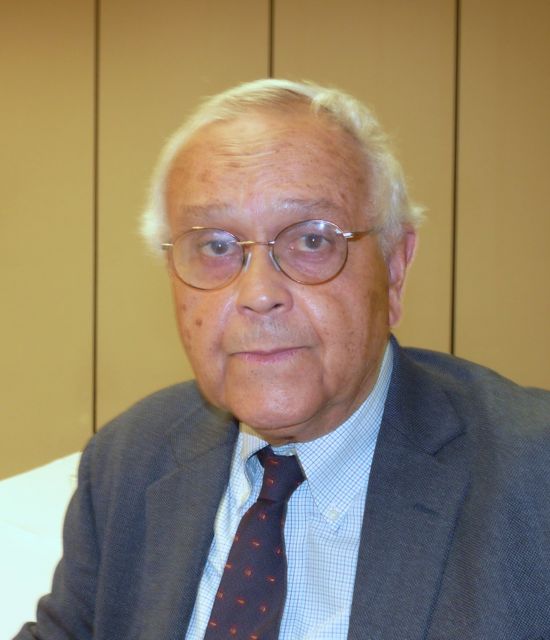
ALRB Chairman Bill Gould Defends ALRB’s Actions
By Patrick Cavanaugh, Deputy Editor
California Ag Today exclusively interviewed William B. Gould IV, member and chairman of the California Agricultural Labor Relations Board (ALRB), and previously chairman of the National Labor Relations Board. ALRB Chairman Bill Gould described his extensive experience in labor law, “I have been practicing in labor law both on the union and employer side. I’ve arbitrated labor disputes for 50 years as an impartial arbitrator, and I’ve been in academics, teaching law, and of course in government service as well.”
Chairman Gould defined the Board’s role, “The ALRB is a quasi-judicial neutral agency that was established to interpret and administer the Agricultural Labor Relations Act of 1975. It deals with the cases in front of it the best it can and tries to promote rulemaking to implement the objectives of the statute.
When pressed to address a widely held belief that the ALRB is biased in favor of the United Farm Workers (UFW), particularly against Gerawan Family Farms, a Fresno County tree fruit operation which for several years has witnessed a majority of its farmworkers attempt to fight mandatory-mediation-imposed UFW representation and fees, Chairman Gould replied, “The ALRB is a government agency that is concerned with enforcing and administering labor laws. I think when you get in the business of interpreting law and finding facts, sometimes people don’t always agree, and that has happened in a number of cases. A lot of people don’t understand that the statute is written fundamentally to protect the rights of workers to engage in freedom of association and in concert under conditions they consider unfair. The Act also protects employees from retaliation for these freedoms. We are an impartial agency that attempts to take into account the interests of all parties; but fundamentally, we have to find all the facts before us and make decisions and determinations.”

“And while farmers would agree that farmworkers should have the right to speak up when something is wrong without any retaliation,” Gould elaborated, “bosses are not forced to correct any wrong or to change things. And the boss is not obliged under our statute to do anything about wages, health or safety concerns. We are concerned with giving workers the ability to speak up and engage in concerted activity with protection against employer retaliation.”
On September 17, ALRB administrative judge Mark Soble ruled to prohibit Gerawan employees from learning the outcome of ballots cast in 2013 to decertify the UFW union, angering the agricultural industry and the Gerawan farmworkers, in particular. Gould said, “I can’t make any comments about that matter at all.”
Recently the ALRB hosted three hearings in the state to learn how to better educate farmworkers about their labor rights and to establish legal access to communicate directly with them during work hours at their work sites. Prompted to explain this ALRB request to access private farm property, during production hours, Gould replied, “The problem is the difficulty in reaching those with lack of legal status and who live in the shadow of the law and are afraid to protest. As the most recent witness testified, this population is sometimes cut off by language barriers and might not know the content of the law.”
“Putting aside language and documented status,” Gould continued, “many workers don’t know some very basic aspects of the National Labor Relations Act because of the inability of the Board under the Act to communicate with those workers. So what we are looking at is our ability to communicate the content of the law and the procedures we employ more effectively than in the past.”
When asked about other forms of outreach, such as hanging educational posters in different languages that workers understand, Gould said, “These indigenous languages are something that only academics read. I don’t think that many of the farmers are academics.”
Chairman Gould explained the ALRB could reach workers who speak these ancient languages by “having lawyers on private property describe the content of our statutes and our procedures and perhaps show videos that would explain the rules in their own language.”
Appointed in March 2014 as a member and chairman of the Agricultural Labor Relations Board, William B. Gould IV has been Charles A. Beardsley professor of law, emeritus at Stanford Law School since 2002, where he has held multiple positions since 1972, including professor of law. He was chairman of the National Labor Relations Board from 1994 to 1998. Mr. Gould was a visiting professor of law at Harvard Law School from 1971 to 1972, professor of law at Wayne State University Law School from 1968 to 1972, and a lawyer at Battle Fowler Stokes and Kheel from 1965 to 1968. He was an attorney-advisor for the National Labor Relations Board from 1963 to 1965 and assistant general counsel for the United Automobile Workers from 1961 to 1962. Mr. Gould is a member of the National Academy of Arbitrators. He earned a Bachelor of Laws degree from Cornell Law School.
Mr. Gould’s term expires January 1, 2017 (Pursuant to Labor Code § 1141(b).)








